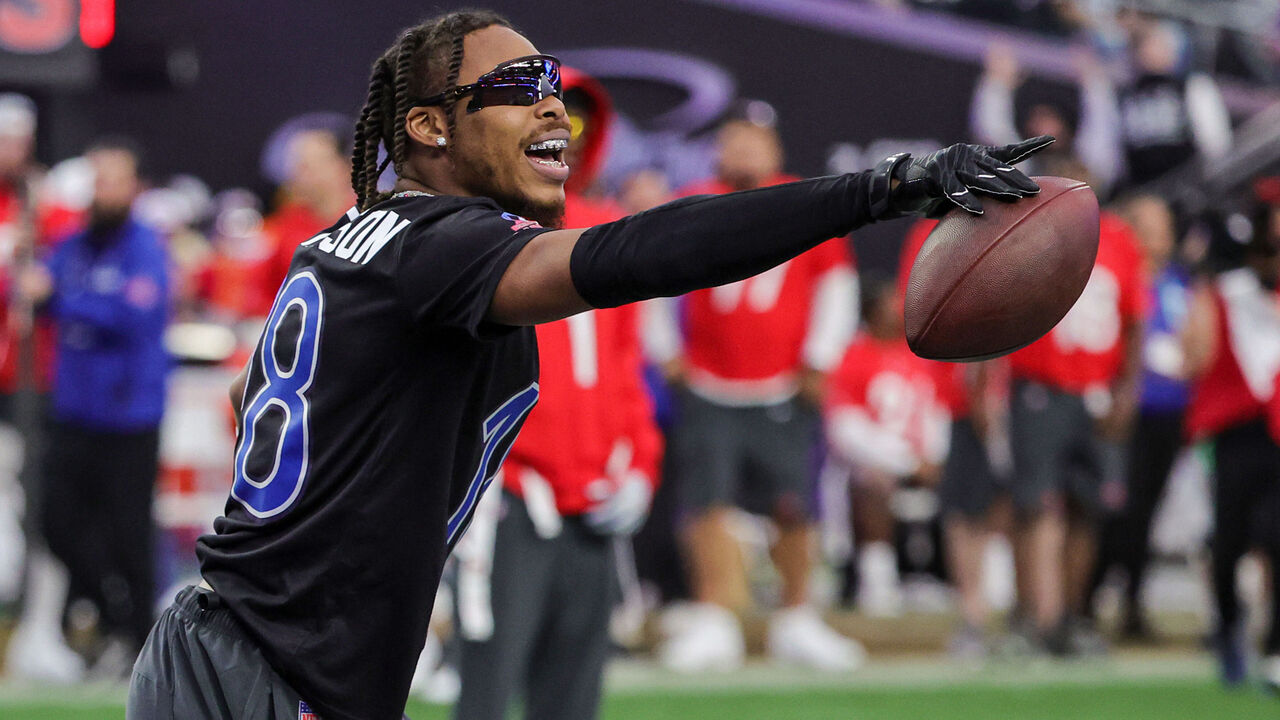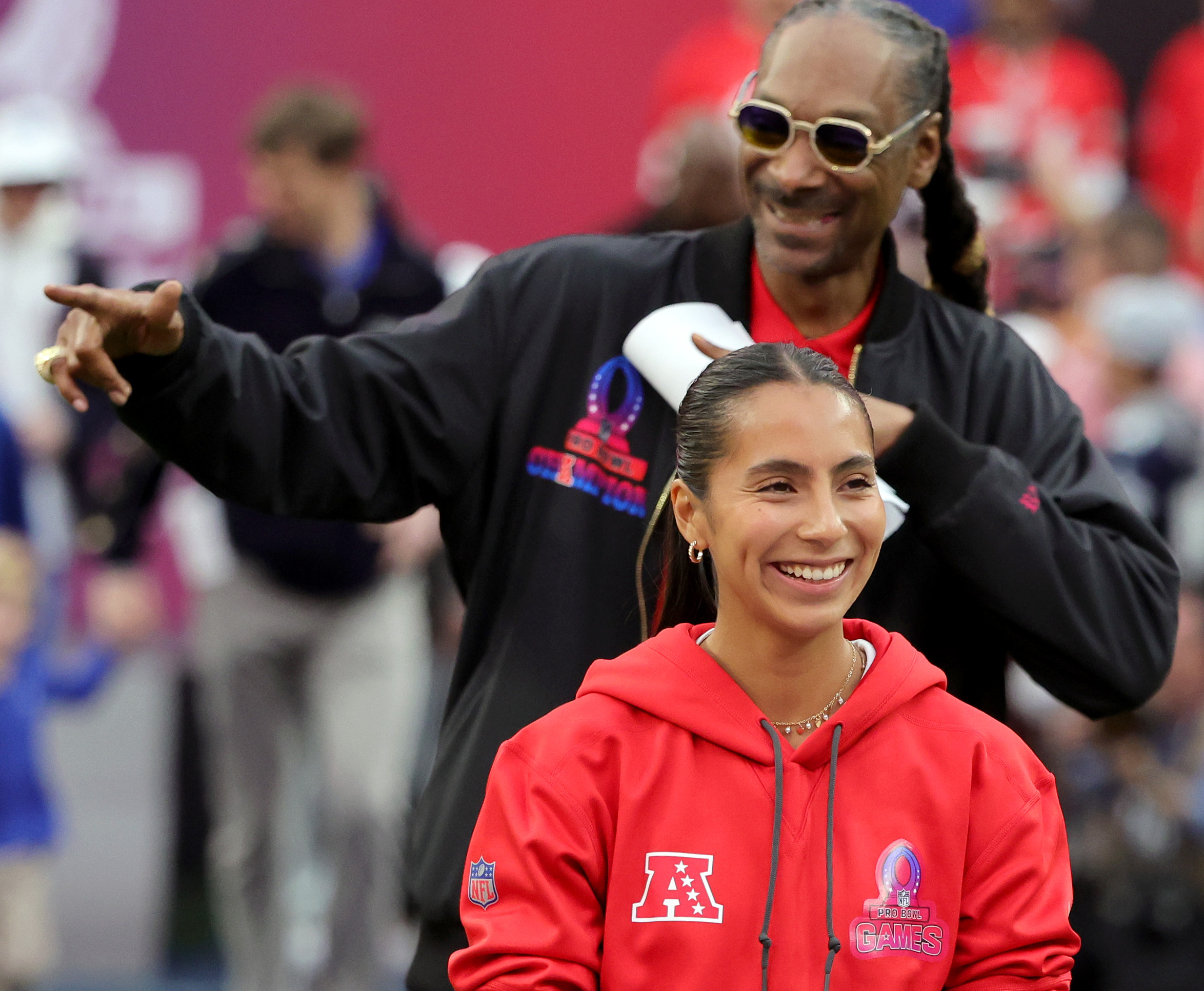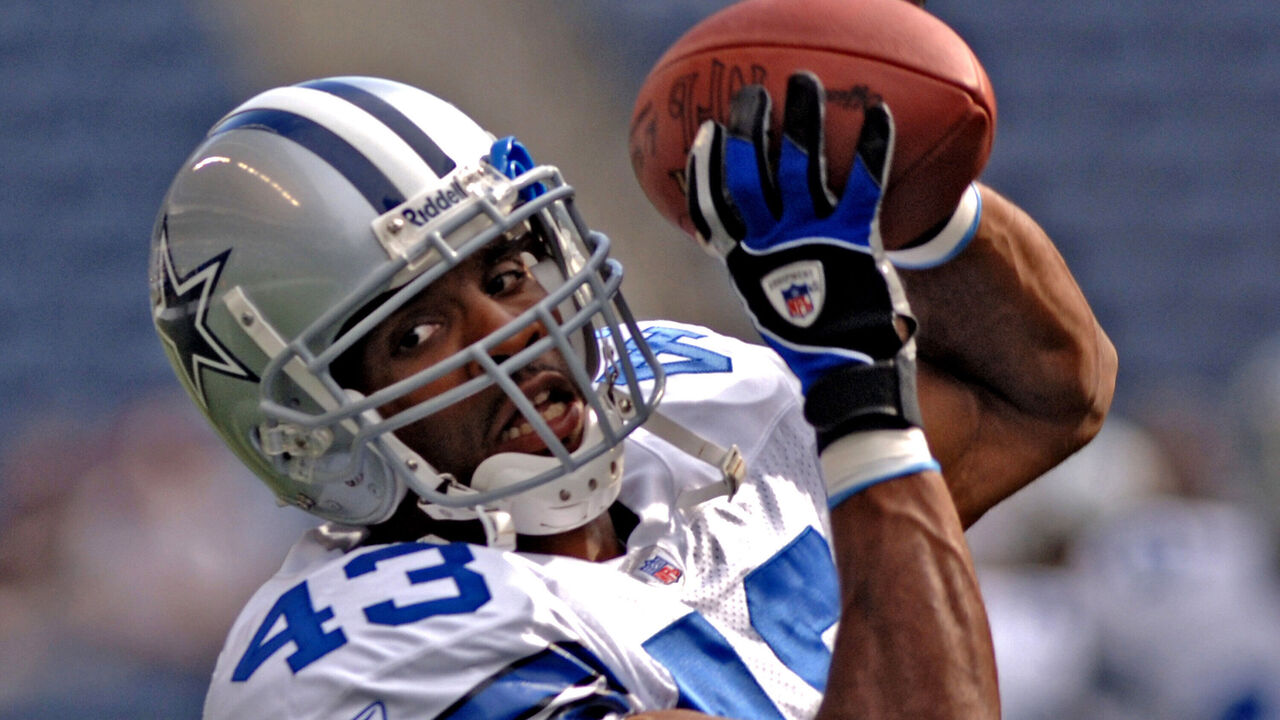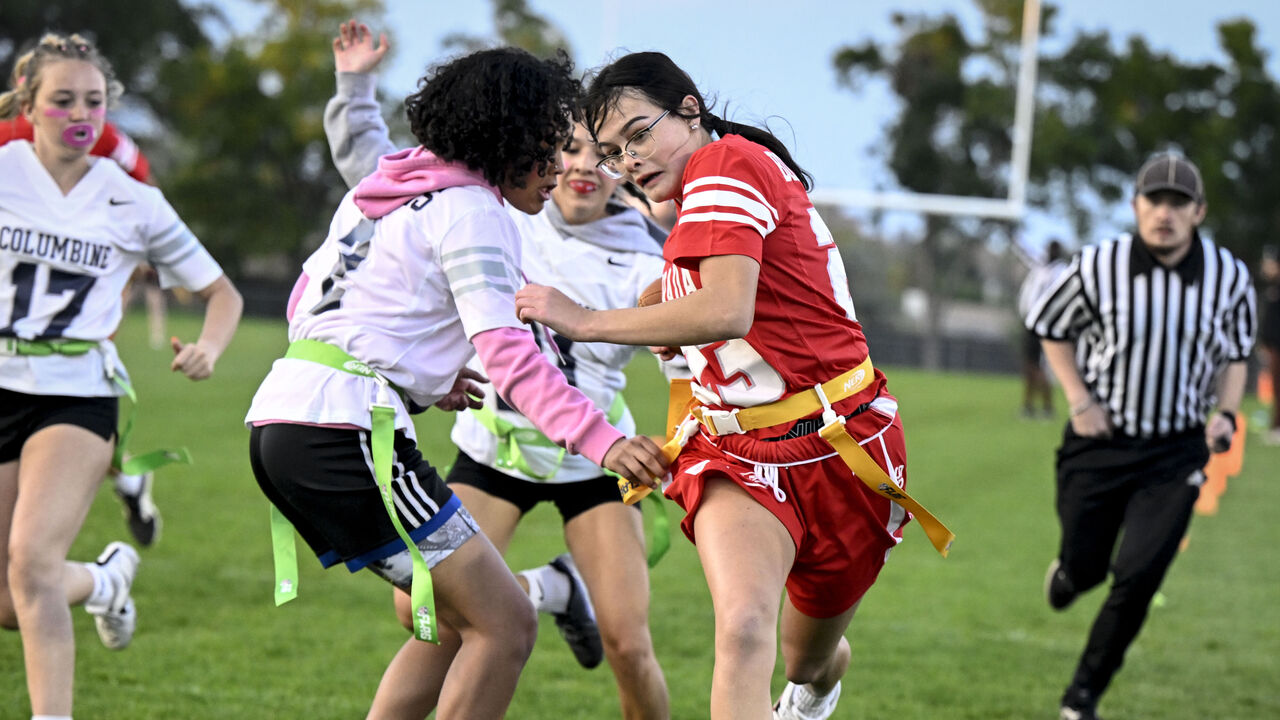Why flag football is one of the nation's fastest-growing sports
Overweight, cross-eyed, and bullied at school, future Heisman Trophy winner Matt Leinart wasn't exactly an obvious football star in the making during his awkward middle school years.
"I was very heavy, so I couldn't make the weight limit for tackle," he told a group of students this spring at his alma mater, the University of Southern California.
"I could throw, even though I was big and slow. I had a good arm," he said. So Leinart signed up for flag football - and the decision changed the course of his life.
Have fun with this twitter... 😂 #23yearchallenge pic.twitter.com/Oy8bpqAqyc
— Matt Leinart (@MattLeinartQB) January 15, 2019
"When I look back, flag football really was the start of my football career. I just loved it. I loved being with my teammates. I loved getting in my dad's van and going to rival schools. I loved hanging out with my friends and competing," he said.
He eventually slimmed down and channeled that passion into a legendary college career as the quarterback under coach Pete Carroll for the USC Trojans, collecting three national titles (though one was later vacated) before going 10th overall in the 2006 NFL Draft and playing six seasons of professional football. In 2017, he was inducted into the College Football Hall of Fame.
Remembering his roots on the flag football field, he launched the Matt Leinart Flag Football League for Southern California youth from pre-kindergarten to eighth grade in 2010. Since its inception, the league has grown from 100 to about 8,000 participants, and at least 1,000 of them are girls. And that increasing interest in flag football is no anomaly. Flag football is rapidly becoming popular throughout the country, spurred largely by the development of NFL Flag, a nationwide flag football program that's operated since 1994 and now boasts over 600,000 participants in its 1,600 leagues across 50 states.

"It's reached a point where it deserves to be anywhere and everywhere and be played by all ages," said Izell Reese, the CEO of RCX Sports, an official operating partner of NFL Flag. "There's a big focus on going into inner-city communities, rural communities, and affluent communities. It's everywhere. Just the ease and fun of it, and the active side of it, is what has allowed the sport to grow."
Reese, a former defensive back who played seven seasons for the Dallas Cowboys, Buffalo Bills, and Denver Broncos, said its origins as a coed sport also give it broader appeal. "Young girls and young women see that opportunity. And they're putting their own culture, their own spin on it. They're amazing to watch," he said.
That could be why flag football is bucking the trend when it comes to youth participation. In 2018, just 38% of kids from the ages of 6-12 regularly participated in team sports. According to the Sports and Fitness Industry Association, and cited in The New York Times, that number was down from 45% a decade earlier. But flag football is moving in the opposite direction; it's one of the country's fastest-growing sports.
According to NFL Flag's official numbers, participation in flag football by 6-to-12-year-olds has increased 38% since 2015. The Sports and Fitness Industry Association reports that tackle football in the same age range has fallen 29% since 2016. The 2021-22 high school season was the first since the turn of the century with fewer than one million participants, according to SFIA numbers cited by U.S. News & World Report.
The NFL's support for flag football can't be underestimated as a factor influencing its fast rise. "It has the NFL marketing and cache behind it," Reese said. "When you can say, 'Hey, I'm gonna go play flag football and be the Dallas Cowboys and wear a jersey,' I think it enhances the experience."
The league has further signaled its support by not only changing the Pro Bowl to flag football but also by including Mexican flag football world champion Diana Flores as the lead in its 2023 Super Bowl commercial.

The league has a vested interest in flag football's growth. "Flag now lends itself to that opportunity to just grow the game of football, period," Reese said. "It's still football; it's still Xs and Os." Flag football serves as an entry point into the broader football ecosystem. And it's clear the NFL isn't limiting that ecosystem to the North American market. Flag football might just help the NFL achieve its global expansion goals.
In the summer of 2022, the NFL put its weight behind Vision28, a campaign headed by the International Federation of American Football to promote flag football's inclusion in the 2028 Summer Olympics in Los Angeles.
"The Olympics are still a big deal, last time I checked," Reese said. "When you talk about global expansion, nothing says that more than the Olympics. When a sport is played on a national scale, it's one thing. When it's played on a global scale, that's another thing."
To make it onto the Olympic program, a sport needs to show evidence of worldwide interest and gender balance. While tackle football might never be able to check those boxes, flag football is already well on its way. The International Olympic Committee should announce a final decision on the matter by the 140th IOC Session in October, if not sooner.
If flag were to be added to the Olympic program, it would certainly be a boost for the NFL, which has been actively developing fans overseas for years. In 2023, the league will again play a record five international games in London and Germany. Last year, the league began granting teams marketing access to overseas territories. Twenty-one clubs are slated to participate in the NFL's global markets program in 2023 in 14 countries.

The league has also alluded to possible international franchise expansion. "I think what we are focused on is building capacity, so if there were that opportunity - whether a club wanted to consider relocation or potentially looking at expansion - we are in that mode," Peter O'Reilly, the NFL's executive vice president of club business, international and league events told Front Office Sports' A.J. Perez. "In London, where we've been for a long time, and now in Germany, we're making sure we've got the stadium partners, the governmental partners, and the fan support to sustain that possibility."
Laid out in these terms, flag football's growth seems like an integral building block in a large-scale business strategy for the NFL. As powerful as the NFL is, the league can't manufacture passion for the game itself in regions where football isn't a cultural custom. That comes from the athletes who step on the field and develop a lifelong passion through playing the sport.
"I fell in love with the sport in first grade," said Sydney Bertoni, who initially joined a boys' team in Leinart's Orange County league before the sport gained enough traction with girls in her age group to start fielding separate teams.
"I remember watching Syd when she was younger," Leinart said. "She would play on the boys' teams and dominate, and she just loved it.
"We're fortunate to have young women like Sidney trailblazing for the future generations."
The sport grew up around Bertoni. By sixth grade, there were enough girls to field a team and soon an all-girls division. It has also been included in the athletic programs of a growing list of states, such as California, Alabama, Nevada, and New York.

"I think flag football is more approachable," said Bertoni, who's now 18 years old and off to college in the fall. "And I think it's amazing the fact that we're talking about flag football becoming a 2028 Olympic sport."
But her career has already come to an abrupt pause. The sport recently became sanctioned by the NAIA but wasn't available as an NCAA sport when Bertoni was applying for colleges. Bertoni, who hasn't yet made the national team, currently doesn't have an opportunity to continue playing the game competitively.
Just this week, though, the Atlantic East Conference made headlines when it announced it'll become the first NCAA conference to offer female varsity flag football in partnership with Reese's RCX Sports, the NFL, and the Philadelphia Eagles. It's expected to be a varsity sport by the spring semester of 2025.
"It's amazing to be called a trailblazer, but if I was just three years behind, maybe the path would have already been paved, and I could have gone in with more options if I wanted to play at the next level," Bertoni said. "It is kind of a bummer, but I know it's greater than myself."
Jolene Latimer is a video producer and feature writer for theScore.
HEADLINES
- Kian Schaffer-Baker, Riders agree to two-year extension - CFL.ca
- B.C. Lions sign Kory Woodruff to contract extension through 2027
- Argos sign running back Peyton Logan, release defensive back Branden Dozier - CFL.ca
- Trey Vaval to remain with Winnipeg Blue Bombers despite NFL workout tour
- Montreal Alouettes sign son of Pro Football Hall of Fame receiver Terrell Owens